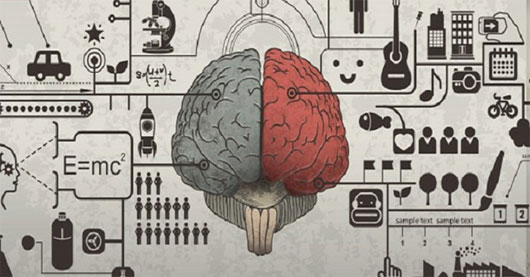What's the difference between the brains of entrepreneurs?
Many people still believe that entrepreneurs think more creatively than most of us because their brains have different 'nerves'. Is this true or not?
Before many people were concerned, there have been a lot of studies recently taking this issue seriously.
A team of neuroscience researchers and business scholars studying in Italy and Switzerland recently used a fMRI magnetic resonance imaging device (or tomography machine) to capture brain images of entrepreneurs and managers when these people are asked to find different solutions to the same problem.
The researchers found that when entrepreneurs began to find ways to solve the problem, they mostly used the right prefrontal cortex, where there were many creative nerves. Meanwhile, managers tend to only use the left side brain, which is much related to logical thinking.
Before this study was conducted, there were several other studies explaining that the brains of entrepreneurs and managers have different approaches to the problem because different experiences can lead. They come to think differently.

Entrepreneurs often use the right brain to promote creativity.(Illustration)
The brains of entrepreneurs are constantly exposed and seeking solutions for situations that managers bring; and managers often face situations that require different experiences.
Most previous studies have come to the conclusion: The human brain is very flexible, it can be changed in response to skills and experiences.
Research by the Swiss-Italian research group has also found some evidence to support this explanation. The job of managers often requires a lot of experience to handle similar situations than entrepreneurs.
In contrast, entrepreneurs can approach different issues, because their brains are similar to a "computer hard drive" that is more likely to use creativity. Therefore, those who are born have many creative ideas that tend to like business.
This shows that genetic factors also significantly affect human creativity.
A study from the University of Cyprus (UK) with over 3,000 British twins shows that genetic factors directly affect "creative personality" as well as the ability to identify new business opportunities and start Set up the company.
Genetic factors help some people more likely than others to seek novelty to lead to their ability to bet in business.
In addition, a study by a group of molecular geneticists also showed that genes that regulate levels of dopamine (neurotransmitters) in the brain are combined to create creativity in entrepreneurs. usually more popular than others.
Moreover, hormones may also be factors that affect how entrepreneurs think. A 2006 study found that men with higher testosterone levels were more likely to accept risks and more likely to become entrepreneurs than those with low testosterone levels.
Of course, the most important thing that makes the difference between entrepreneurs and most of the rest is due to nurturing environmental factors and the educational process, but it is undeniable that they have innate 'nerve' is different.
- What is the difference between the brains of murderers?
- Find the main difference between normal human brain and killer
- October 13: Day to honor Vietnamese entrepreneurs
- 100 brains disappear mysteriously
- Day and night how much temperature difference affects health?
- Neuronic brains are like our brains
- Big brain makes smarter but less muscular?
- The reason that pets often have reduced brain
- Thinking in the brains of two sexes is completely different
- People with big brains will be smarter, remember longer?
- Dog and cat?
- Why young people easier to learn?
 'Fine laughs' - Scary and painful torture in ancient times
'Fine laughs' - Scary and painful torture in ancient times The sequence of numbers 142857 of the Egyptian pyramids is known as the strangest number in the world - Why?
The sequence of numbers 142857 of the Egyptian pyramids is known as the strangest number in the world - Why? History of the iron
History of the iron What is alum?
What is alum?